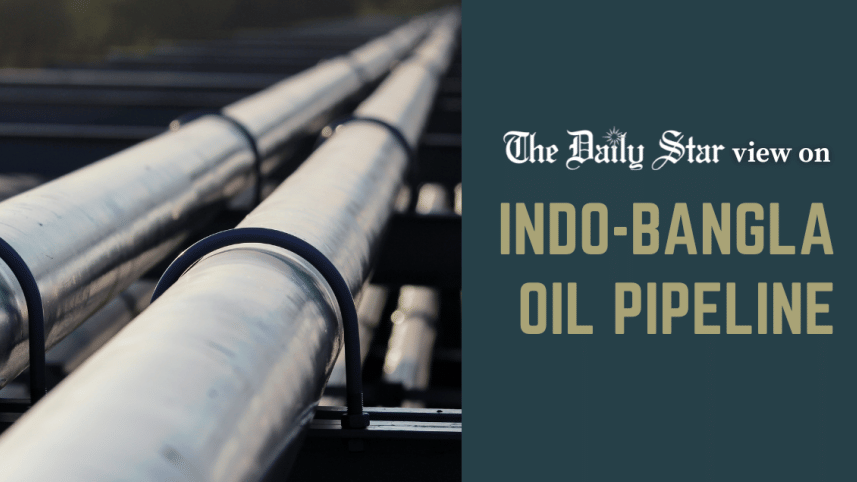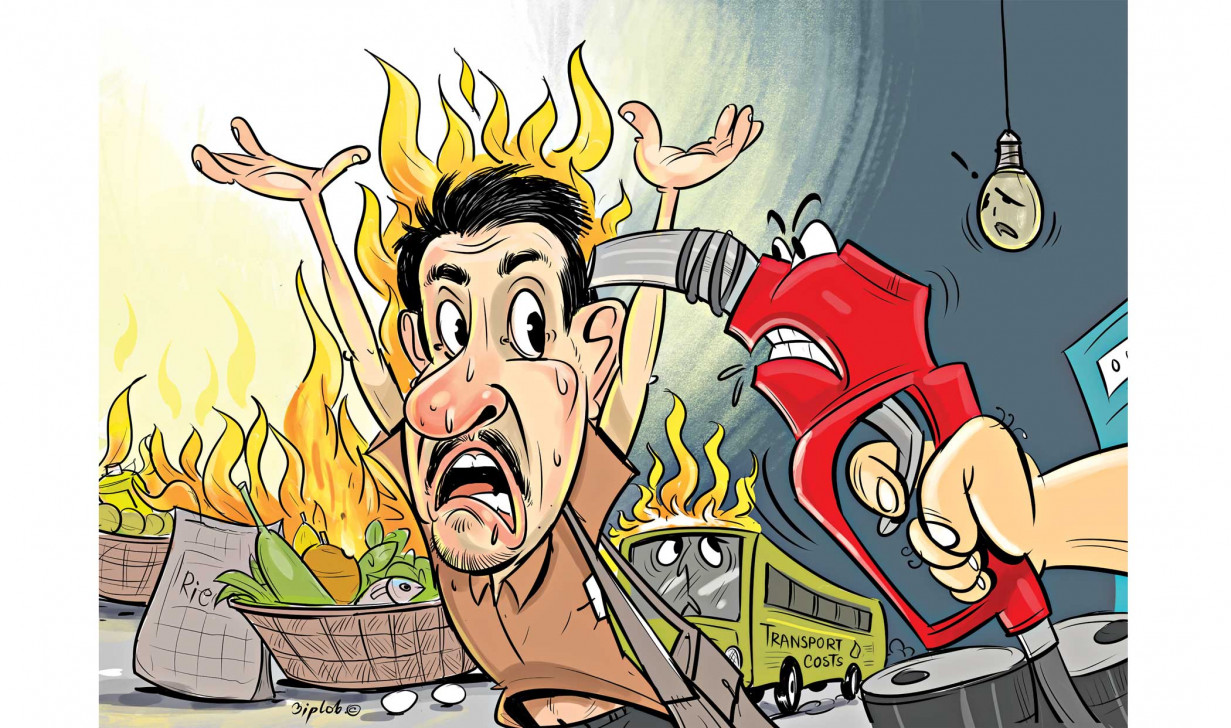Hope in the time of energy crisis

We are delighted to see the opening of the India-Bangladesh Friendship Pipeline – the first cross-border energy pipeline between the two neighbours – which comes at a time of great uncertainty over the future of Bangladesh's embattled energy sector. Prime Minister Sheikh Hasina and her Indian counterpart Narendra Modi jointly inaugurated the pipeline through a video-conference on Saturday. Speaking at the event, Sheikh Hasina said that it will "play a pivotal role" in ensuring Bangladesh's energy security. In his speech, Modi termed the initiative an "excellent example" of increasing connectivity between the two countries.
On the opening day, around 90 lakh litres of diesel were reportedly imported through the pipeline, which stretches 126.57km into Bangladesh's territory and 5km into India's. The project is part of a 15-year deal under which Bangladesh will import 2.5 lakh to 4 lakh tonnes of diesel from India annually. As per the Indian Ministry of External Affairs, the operation will put in place a sustainable, reliable, and cost-effective mode of transporting fuels. From an environmental perspective, the pipeline carries some natural risks though, as all oil pipelines do. It's a risk that the whole world shares, with more than 24,000km of new oil pipelines currently under development globally. However, the pipeline will still be an improvement over the current mode of transportation from India, while serving a practical purpose for Bangladesh as well.
As per a report by The Times of India, the pipeline will reduce the time of transportation to just one hour, as opposed to the several days it takes to transport diesel via freight wagons and trawlers from the Chattogram and Mongla ports, thus ensuring a faster supply to our northern districts. It will also reduce the cost of transportation, if not the cost of fuel itself. There is, therefore, much to be hopeful about the project, if it is implemented properly. This is where we need to be careful going forward.
There is no denying that Bangladesh is going through a difficult phase at the moment, because of its protracted dollar crisis as well as disruptions in the global energy sector following the Russia-Ukraine war. Most of the public transport in Bangladesh runs on diesel. In recent months, the rise in the cost of fuel imports, particularly diesel price, has had the most telling impact not only on food and non-food inflations, but also on most of the components of the consumer price index (CPI). As well as external factors, there have been internal challenges including long-standing governance issues like mismanagement and irregularities in relevant state institutions, which compounded people's suffering.
We hope these issues will not be a factor in the pipeline project, which can offer an answer to some of the concerns over diesel pricing. Over the last five decades, India-Bangladesh ties have led to significant achievements in cross-border trade and connectivity. The inauguration of the pipeline has opened a new chapter in our bilateral relations. Going forward, we need to build on that so we can protect our long-term interests, not just in the energy sector, but in other areas as well.



 For all latest news, follow The Daily Star's Google News channel.
For all latest news, follow The Daily Star's Google News channel. 
Comments